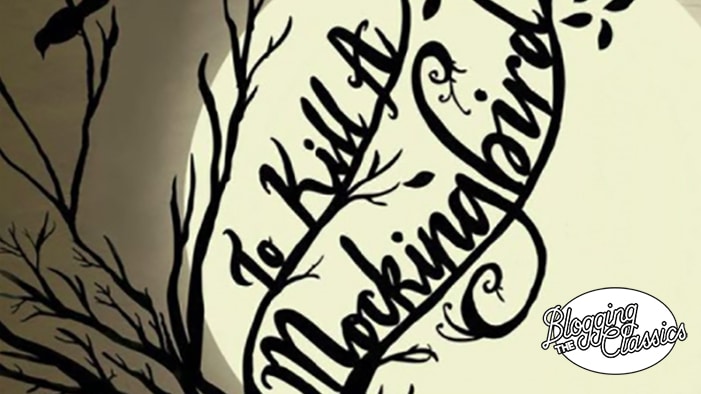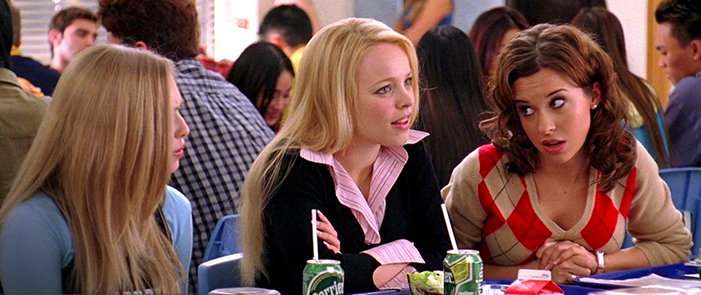Blogging To Kill a Mockingbird: Chapters 20 & 21

To catch up on Blogging To Kill a Mockingbird, click here!
You know that feeling you get after an episode of Law & Order: SVU when the bad guy gets off on a technicality, and Stabler is so full of righteous fury he simply MUST punch a wall while Benson looks on, sighing and warning him not to do anything crazy? That is exactly what these next chapters feel like.
But I’m getting ahead of myself.
We left off last time with Dill about to be kidnapped by the town pariah. Just kidding. Dill was crying in the courtroom because the prosector was being awful, so Scout took him outside. Now a stranger is offering Dill a drink from a paper bag with a straw sticking out of it, and Dill is accepting it, like the fearless, death-defying hellion that he is.
Scout says, “Dill, you are a LUNATIC? You can’t just DRINK out of a PAPER BAG offered to you by SOME RANDOM GUY.” Well, what she actually says is “Dill, you watch out, now,” but I feel like the situation warrants a much stronger reaction.
Dill placates both her and me by revealing that it’s just Coca-Cola. The random guy, also known Dolphus Raymond, asks them not to tell anyone; it’ll ruin his reputation as the contemptible town drunk. Scout asks him why he pretends to be drunk all the time, but she phrases it like this: “Why do you do like you do?” and I’m picturing Dill saying, “Oh my God, Scout, you can’t just ask people why they do like they do.”

Paramount Pictures
Mr. Raymond explains that he pretends to be drunk all the time because it allows the citizens of Maycomb to make sense of his OUTLANDISH, UNRULY behavior, i.e. the way he prefers hanging out with black people to hanging out with white people. He explains this for two whole pages, and at the end of it I still don’t understand why he feels the need to act perpetually drunk. Don’t coddle the community, my guy. Let them see a white dude having children with a black woman and not caring what anyone thinks about it. Either way, you’re not going to be trending positive with the close-minded whites of Maycomb; might as well live your truth. In any case, you’d save money on Coca-Cola which, as I understand it, is not very expensive now (Coca-Cola had a fixed price back then of ONLY A NICKEL) but believe me, this is unsustainable and inflation is coming.
Mr. Raymond goes on to say that Atticus is one of the good ones. This reminds Scout that the main plot is happening inside, so she and Dill head back into the courtroom.
Atticus is giving his closing remarks. Jem whispers to Scout that there’s no way they won’t win; there’s zero evidence against Tom, and Atticus explained everything as you would 1+1=2. Atticus pauses for a second, then loosens his tie and takes off his coat. Scout and Jem are horrified, because this is the equivalent of Atticus doing cartwheels naked before the jury.
His tone becomes less formal, less businesslike. He speaks to the jury as if they’re just chatting over coffee. He does this to humanize them, and to humanize Tom Robinson. A jury, he says, is made up of people—capable of good and bad and everything in between. Tom Robinson is also just a person. He’s not evil or immoral simply because he’s black; he’s a human being and should be afforded the same presumption of innocence until proven guilty as anyone else. (I KNOW, GROUNDBREAKING, but this is 1935 and everyone is like “WHAT? YOU MEAN BLACK PEOPLE… ARE PEOPLE? SAYS WHO?”)
He says a lot of other stuff about Mayella (“She is the victim of cruel poverty and ignorance, but I cannot pity her; she is white”), about Bob Ewell (“There is circumstantial evidence to indicate that Mayella Ewell was beaten savagely by someone who led almost exclusively with his left”), about the very nature of racism itself. But rather than rehash it all, here’s Gregory Peck doing the whole scene for the film in ONE TAKE and quoting the book almost word-for-word:
He says all men are NOT created equal because, as we know, some people born smarter than others, some people are born with more opportunity than others, some people make better cakes. But all men are created equal in the eyes of the law, and he urges the jury to remember that. “In the name of God,” he says, “do your duty.”
In a way, Dolphus Raymond serves as a foil to Atticus. While Mr. Raymond has basically given up on society, Atticus implores them to be better.
Before anything else can happen, however, Calpurnia appears, and Scout and Jem instantly know they’re in trouble.

In Chapter 21, Mr. Underwood immediately rats out Scout and Jem, telling Atticus they’ve been here all afternoon. Atticus requests a brief recess so he can send the kids home, but he relents when Jem asks if they can come back after supper. Calpurnia yells at them on the way back to the house, but neither Scout nor Jem is bothered about it. Scout is happy Jem is in trouble (“Mr. Jem, don’t you know better’n to take your little sister to that trial?”), and Jem is happy because he believes Atticus has won the case.
The jury’s still out when they return. Jem tells Reverend Sykes they’ve got this in the bag, but Reverend Sykes isn’t so sure.
It takes three more hours for the jury to make up their minds. When they file back inside to deliver their verdict, Scout realizes what’s about to happen.
A jury never looks at a defendant it has convicted, and when this jury came in, not one of them looked at Tom Robinson.
Tom Robinson is found unanimously guilty. Atticus whispers something to Tom Robinson, and then he makes his way down the aisle. The black men and women in the balcony silently stand as a sign of respect.
NOTABLE QUOTES
“Miss Jean Louise, stand up. Your father’s passin’.”
THIS AND THAT
- Jem is completely blindsided by the jury’s verdict; he thought logic and reasoning would win the day. Unfortunately, Jem forgot to factor in the prejudice that’s deeply woven into the fabric of our society. It was true in 1935, and it’s still true today, according to this study for the National Registry of Exonerations in 2017.
- To Kill a Mockingbird focuses mostly on how the verdict affects Scout and Jem (i.e. their disillusionment with the world and the destruction of their childhood innocence). For the black community of Maycomb, this is yet another defeat in a long line of dehumanizing defeats.
- Atticus paints Bob Ewell as the real villain right there in front of everybody. I sure hope that doesn’t come back to bite us in the rear.
DISCUSSION QUESTIONS
- How does Atticus attempt to sway the jury? What techniques does he employ? Why is this ultimately fruitless?
- Is Gregory Peck actually Atticus Finch?
Looking for the rest of our Blogging the Classics series? Click here, or you can check out the SparkNote!













